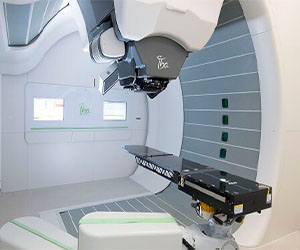Cancer Treatment
Radiation
Proton Beam Therapy: This is an advanced method for treating cancer, known for its high precision. It uses tiny, positively charged particles called protons, which can stop right at the tumor site in the body. This is beneficial because it reduces the radiation dose that reaches the healthy organs and tissues nearby. However, it’s important to note that while this treatment shows promise, more research is needed to fully prove its benefits through large-scale studies.
SRS, SBRT: SRS and SBRT are advanced cancer treatment techniques that work in a similar way, but with slight differences. They use very high doses of radiation to target the tumor and destroy it. These treatments are like surgery without actually cutting into the body, which is why they are called radiosurgery.
The idea of radiosurgery began with the development of the Gammaknife® machine, mainly used for treating brain tumors. It delivers a highly focused beam of radiation in one go, acting like a surgical procedure and effectively getting rid of the tumor. It is importent to appoint Best cancer treatment doctor in Delhi.
Make An Appointment
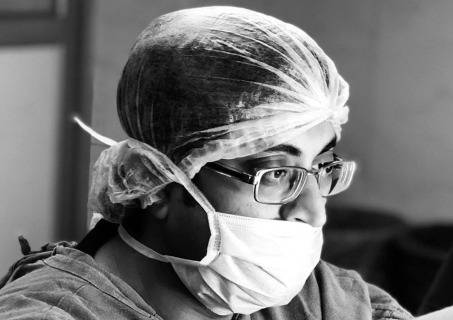


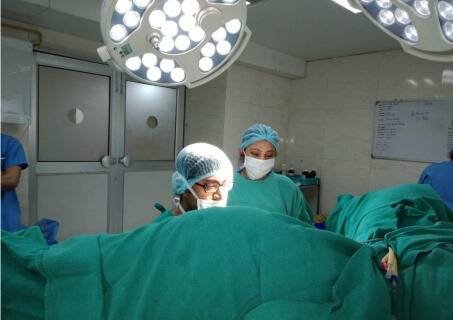
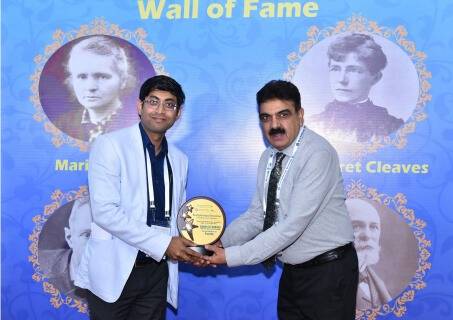





IGRT: (Intensity Modulated RadioTherapy) is a special way of giving radiation treatment. It allows doctors to control the strength of the radiation beams in small sections, so they can adjust the radiation dose in different areas. This flexibility is valuable because sometimes we don’t need a uniform dose of radiation throughout the treatment area. With IMRT, doctors can avoid harming healthy tissues near the tumor, which are sensitive to radiation. This is especially useful when treating head and neck cancers, where important organs like the spinal cord, brainstem, or parotid glands are close to the tumor. IMRT helps protect these organs while still effectively treating the cancer.
IMRT: (Intensity Modulated RadioTherapy) is a special way of giving radiation treatment. It allows doctors to control the strength of the radiation beams in small sections, so they can adjust the radiation dose in different areas. This flexibility is valuable because sometimes we don’t need a uniform dose of radiation throughout the treatment area. With IMRT, doctors can avoid harming healthy tissues near the tumor, which are sensitive to radiation. This is especially useful when treating head and neck cancers, where important organs like the spinal cord, brainstem, or parotid glands are close to the tumor. IMRT helps protect these organs while still effectively treating the cancer.
Conformal Radiation: Conformal radiation is a special way of giving radiation treatment to tumors. It gets its name because it wraps around the tumor, taking its shape. This type of radiation is a big step forward in cancer treatment, especially for breast cancer patients in Delhi. Unlike older methods, conformal radiation is great at protecting healthy tissues around the tumor. But as time has passed, a newer method called intensity-modulated radiation has become more popular in radiation oncology. Even so, conformal radiation is still important for treating kids with cancer. It helps to reduce the amount of low-dose radiation in their bodies, which can lower the risk of developing a second cancer later on. So, even though it’s not used as much now, conformal radiation continues to play a vital role in certain cases, making treatment safer and more effective.
RapidArc®, VMAT®: are special types of radiation therapy. In these techniques, the radiation machine moves around the patient in a circle. While moving, the treatment is given from all different angles in a specific plane. This helps improve the accuracy of the treatment and makes it faster.
Tomotherapy®: is a type of radiation treatment that works slice by slice, similar to cutting a cake into thin layers. The machine used for this looks like a CT scanner, but it actually has a special tool called a linear accelerator inside.
This machine is very useful for treating large areas with radiation, such as when someone needs radiation all over their body, their bone marrow, or specific parts like the head, spine, or pelvis. It’s also great for treating both breasts at the same time.
One of the great things about this machine is that it always uses images to guide the treatment. This means that doctors can see exactly where the radiation is going, reducing the chance of mistakes or uncertainties during the treatment.
Brachytherapy: is a special kind of treatment used to fight cancer. It gets its name from the word “brachy,” which means close. In brachytherapy, a source of radiation is put either inside the tumor or very close to it. This treatment has been around for more than a hundred years and is known for its precision. It can deliver a very high dose of radiation directly to the tumor while causing minimal damage to the healthy tissues nearby.
Intracavitary Brachytherapy: Here the source of radiation is placed inside natural cavity for example inside uterus or vagina. This is the commonest form of brachytherapy in use.
As medical technology has advanced, other ways of delivering radiation, like external beam irradiation, have become more common. This has led to a reduction in the use of brachytherapy for some types of cancer. However, it still plays a unique and important role in treating specific cancers, such as cervical cancer, other gynecological malignancies, prostate cancer, breast cancer, certain types of sarcomas, head and neck cancers, and cases where cancer comes back after treatment.
Interstitial Brachytherapy: Here the radiation source is placed actually within the tumor tissue. This is a more invasive form of radiotherapy. Either the radiation source in the form of seeds or needles are placed inside the tumor or organ. Most of the time it requires spinal anesthesia or general anesthesia. It requires skill and experience to practice this form of radiation.
Surgery
Curative surgery: means removing the cancer from the body. Some types of cancer can be completely cured by taking out either the tumor or the whole affected organ. This can be done through different types of surgeries, either removing a small part of the area or a more extensive procedure. Some cancers that can be cured with surgery are breast cancer, brain tumors, many head and neck cancers, lung cancers, certain gastrointestinal cancers, and soft tissue sarcomas. The surgery can either save as much of the healthy tissue as possible or may need to remove more, depending on how much of the tumor or organ is affected.
Conserving approach: Attempts are made to preserve the function or anatomy or both of an organ.
Radical surgery: Here the organ is sacrificed most of the time with removal of additional structures or organs to provide cure.
Palliative surgery: Sometimes surgery is done not to provide cure but to provide symptomatic relief only. This helps improving quality of life without having much effect on survival.
Chemotherapy: is a crucial treatment for cancer. It involves using special medicines that target and harm cancer cells. These medicines can be given through injections or taken by mouth as pills. Chemotherapy can be used to try and cure cancer or to relieve symptoms and make patients feel better.
Since chemotherapy is strong, it can cause various side effects like feeling sick, throwing up, having diarrhea, and affecting the bone marrow. Sometimes, it may even lead to a second type of cancer. Different cancers respond differently to chemotherapy. It can be used along with surgery and/or radiation to try and cure cancer, or it can be used to make the patient more comfortable when a cure is not possible.
Why Choose Us
Dedicated
Professional Services
Cutting Edge Technology
Hassle Free Services
Comprehensive Cancer Care
Cost Effective Services
Other Services
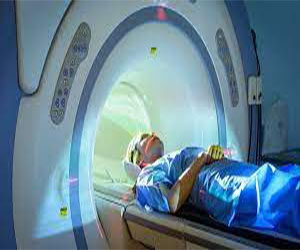
Radio Therapy
It is used for destruction of precisely selected areas of tissue using ionizing radiation.
Screening provides the benefit of early detection of cancer when it is very small.
Proton therapy is an advanced form of radiation therapy designed to kill cancer cells.
In many situations, opinion from a different specialist or institute becomes necessary.
Frequently Asked Questions
What are the common types of cancer treatment?
The common types of cancer treatment include surgery, chemotherapy, radiation therapy, immunotherapy, targeted therapy, hormone therapy, and stem cell transplant. Depending on the type and stage of cancer, one or more of these treatments may be used in combination.
What are the potential side effects of cancer treatment?
The side effects of cancer treatment can vary depending on the type of treatment and the individual patient. Common side effects include fatigue, nausea, hair loss, and weakened immune system.
How is the best treatment option determined for a specific type of cancer?
The best treatment option is determined based on factors such as the type and stage of cancer, the patient’s overall health, and the potential side effects of the treatments.
How is the best cancer treatment option determined for an individual?
The most appropriate cancer treatment option is determined by considering several factors, such as the type and stage of cancer, the patient’s overall health, age, and medical history. A multidisciplinary team of doctors, including oncologists, surgeons, radiologists, and pathologists, work together to evaluate these factors and tailor the treatment plan to each patient’s specific needs.
Can cancer treatments cure cancer?
Yes, some cancer treatments, particularly chemotherapy and radiation therapy, can affect fertility in both men and women. Patients concerned about fertility should discuss preservation options with their healthcare team before starting treatment.
Can cancer treatment affect fertility?
Yes, some cancer treatments, particularly chemotherapy and radiation therapy, can affect fertility in both men and women. Patients concerned about fertility should discuss preservation options with their healthcare team before starting treatment.


